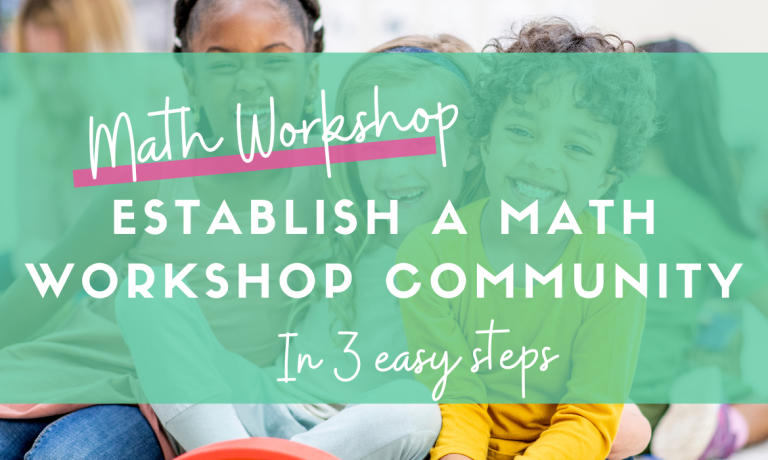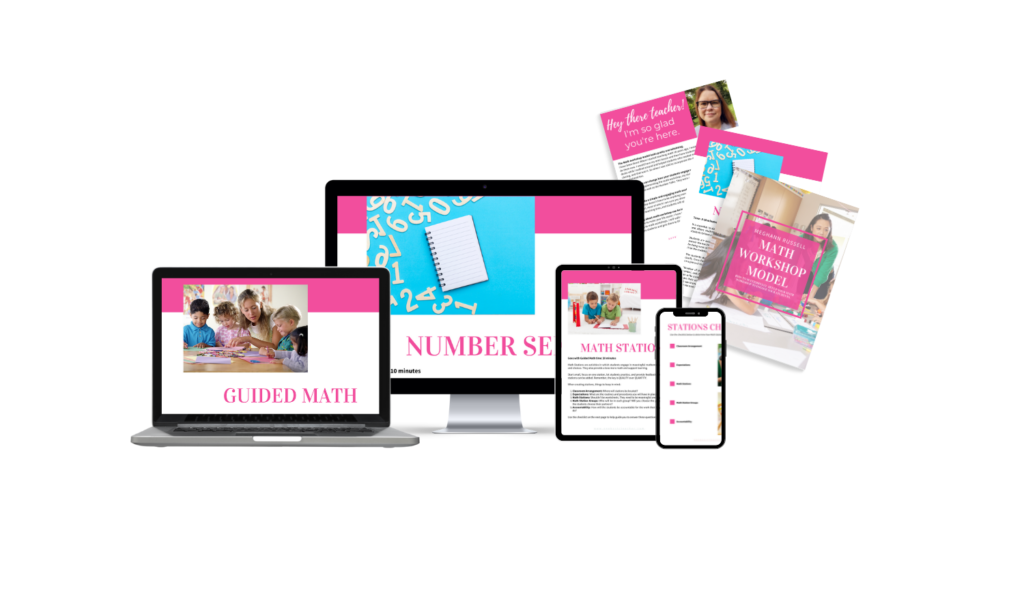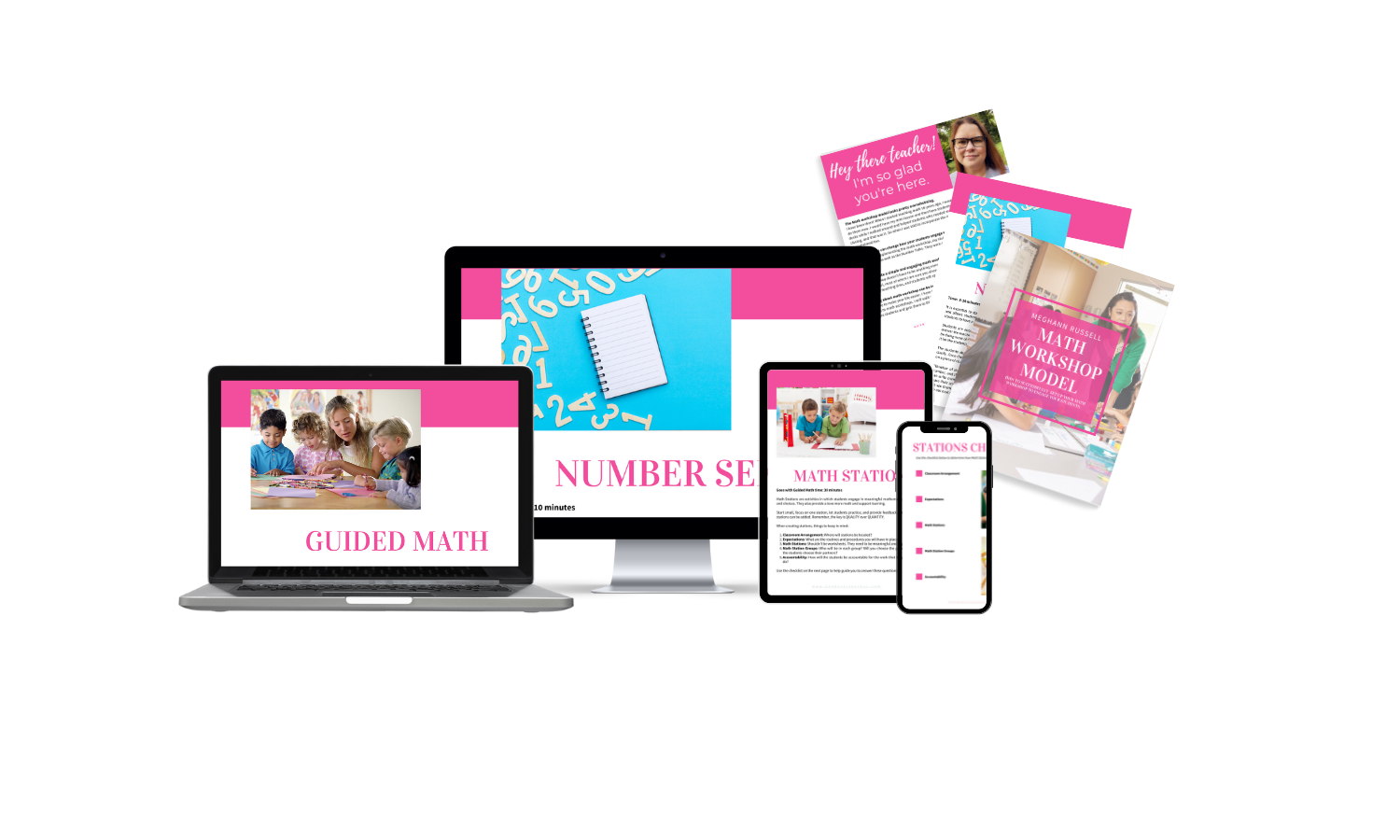Before starting your Math Workshop, you need to establish a math community in your classroom. Most students aren’t going to share their thoughts on how they solved a problem or ask for help. They need to feel safe and comfortable enough to advocate for themselves. There will be a few students who will ask for help, but most will not.
You will need to establish a math community that supports a caring community and a growth mindset model. So in this post, I will share with you how to establish a Math Workshop community in 3 easy steps.
Now, before I get into the nitty-gritty of establishing a Math Workshop community, if you are looking for a guide to set up your own Math Workshop, I have a guide for you sent directly to your inbox! Just a teacher helping out another teacher! Click here to make your math workshop more engaging and fun!
Math Workshop
Math Workshop is a model that allows students to be engaged in math. This can include open-ended problem solving, small group instruction, student choice, and time to practice concepts and skills taught throughout the year. It involves five different components to your math block:
- Number Sense routine
- Whole Group lesson
- Small group instruction (or guided math)
- Math stations
- Closing or a debrief
It is crucial that, as the teacher, you are not always talking or lecturing. The students need time to explore math concepts and find a way to solve a problem independently. This is truly the most challenging part of the Math Workshop.
As teachers, we want to show our students the easiest way to solve problems. They need to understand numbers and see math in their environment. Students make connections and determine problems that need to be solved. As teachers, we must guide and facilitate that learning.
Establishing Rules for the Math Community
Before students start sharing their thoughts on a math problem, you first need to make sure that you establish rules for the math community. This allows students to understand what it means to be a part of the community and how to support each other and make each other feel safe to share their thoughts.
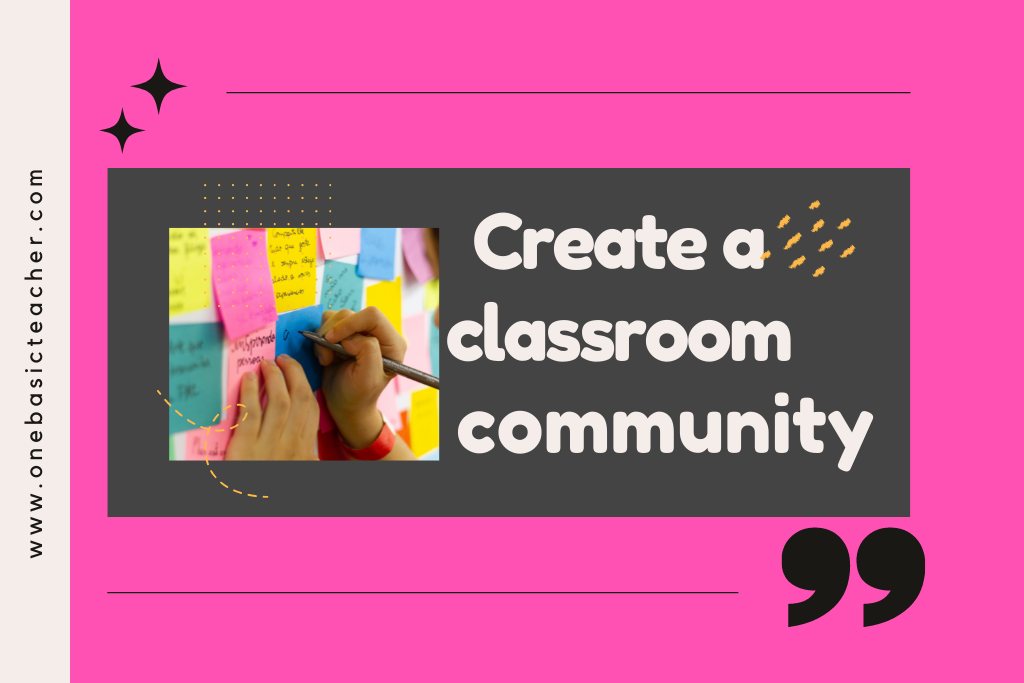
When you make these rules, ask students what it looks like and sounds like to be a part of a caring community.
Here are some examples of rules that you guide your students to choose:
- We work together
- We respect each other’s ideas
- We learn from making mistakes
- We take risks
- We don’t give up
- We know that math makes sense
Make sure to have these rules on an anchor chart that students can see and review daily.
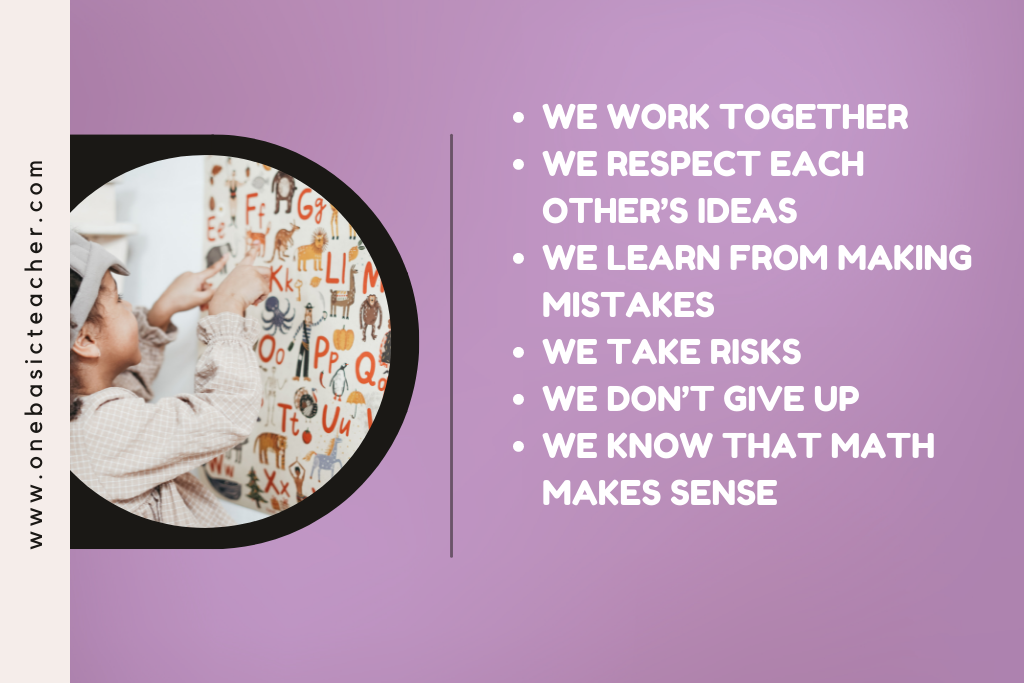
Growth Mindset for Math
These rules that you create also lead to a growth mindset. Students can be nervous when it comes to math. They might get frustrated quickly, and a growth mindset is essential for students to practice.
The best way to start is by pointing out mistakes you make as a teacher. My students know that I make mistakes! If I make a mistake, I say I have a “case of the Fridays,” and my students know I made a mistake and am not upset with myself; I give myself a break. I go on to fix it, and then I move on. Then I point out that I made a mistake because I am human. I fixed it, and I moved on. I made sure that modeled the process, so they know it is okay to make mistakes.
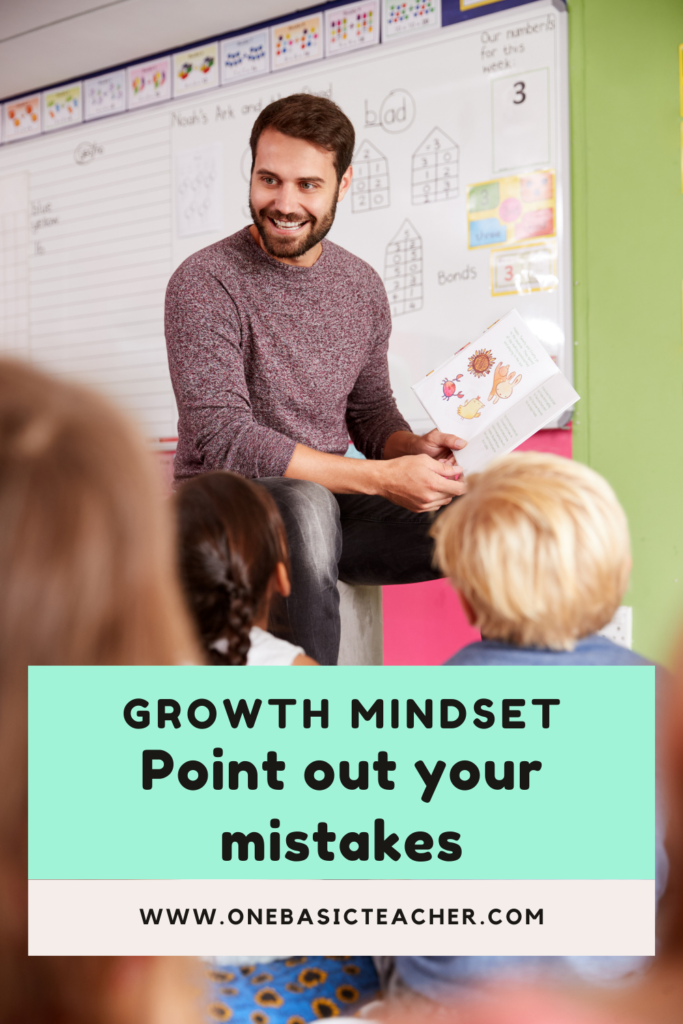
Another way to promote a growth mindset with your students is to encourage them to ask a peer for help. It is okay not to know an answer, but if they ask a friend for help (help, not the answer), it allows them to figure out the answer with help from a friend without feeling like they are a failure for not understanding the math problem.
The final part you can teach students is phrases that can help them approach math more positively. They are all mathematicians, and they can figure out the problem if they keep a positive attitude.
Here are just a few phrases that they can learn:
- I’m not good at this yet, but I can learn.
- What am I missing?
- Mistakes help me learn.
- What strategies have I not learned yet?
- Where can I start?
- Which ones did I get right?
Make sure that you praise students when they use any of these strategies.
Practice Math Community Rules
After you have gone over the rules and growth mindset, you can have students act out these rules or draw a picture of what they look like. You can take the photos of the students and add them to the anchor chart you created with the rules on it so students have a visual reminder.
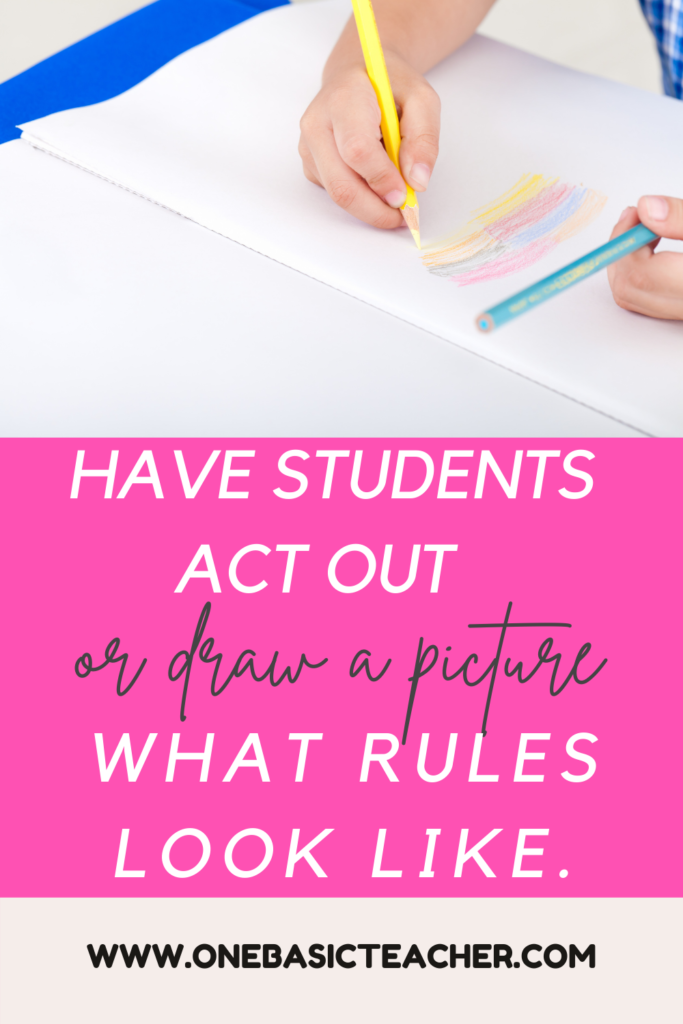
I also like to take pictures of the students demonstrating their community rules. I want to glue them on the anchor chart with our classroom rules. This makes it more personable, and they see themselves practicing the rules and begin to take ownership of the math community.
It is also essential to review these rules from the first to the last day of school. This sets students up for success in Math Workshop.
Math Workshop Community
Establishing a classroom math community is a necessity for Math Workshop. This allows students to understand what it means to be a part of the community and how to support each other and make each other feel safe to share their thoughts. By establishing rules, talking about a growth mindset, and practicing those rules, your students will feel more comfortable sharing their thoughts and encouraging others to do the same.
If you follow these three easy steps, you will find that your classroom will run smoothly and invite all your students to share their thoughts.

Related Articles
3 Awesome Things You Need to Know About Math Workshop

